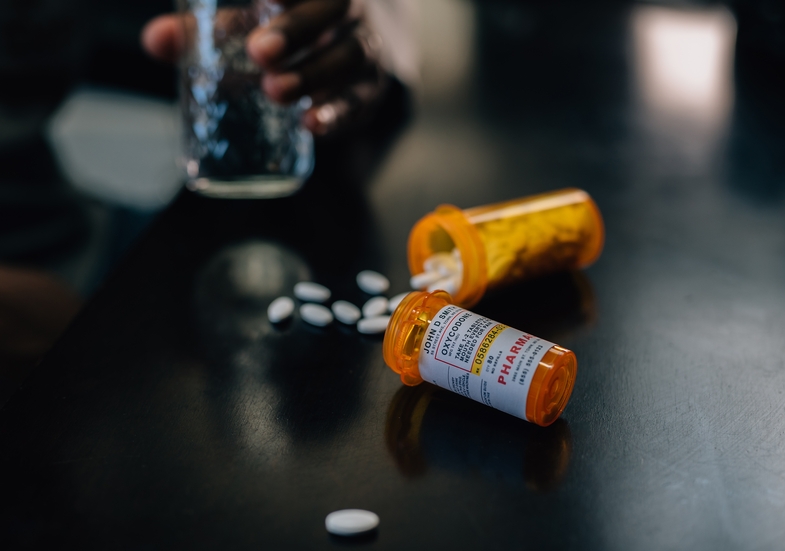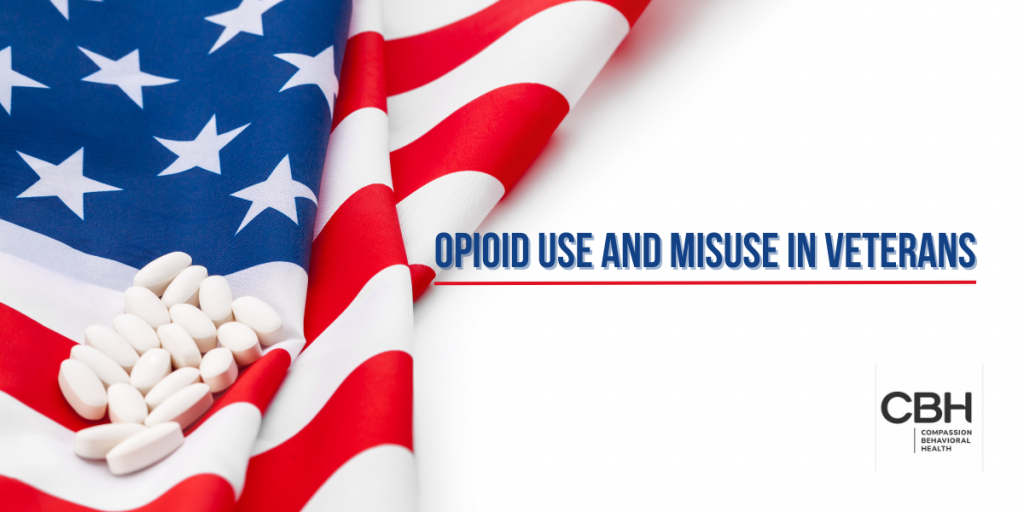Opioid use and misuse among veterans is a complex and pressing issue that requires our attention. This article aims to shed light on the various aspects surrounding this topic, including the prevalence of opioid use, the factors contributing to high usage rates, the transition from opioid use to misuse, the consequences of misuse, and the prevention and treatment strategies available. By understanding these aspects, we can work towards implementing effective policy recommendations that address this issue and improve the well-being of our veterans.
The Prevalence of Opioid Use Among Veterans
Military veterans are disproportionately affected by opioid use compared to the general population. Studies have shown that veterans are more likely to be prescribed opioids for chronic pain management, which increases their risk of developing opioid use disorders. Additionally, veterans who have been deployed, especially those exposed to combat situations, are at an increased risk of opioid use due to the physical and psychological trauma they have endured.
Factors Contributing to High Opioid Use
Several factors contribute to the high rates of opioid use among veterans. Firstly, the widespread availability of opioids within the healthcare system plays a significant role. Veterans may be prescribed opioids without fully understanding the potential risks and side effects associated with their use. Furthermore, veterans often struggle with chronic pain resulting from service-related injuries, which can make them more susceptible to opioid dependence. Additionally, the lack of access to alternative pain management options, such as physical therapy or cognitive-behavioral therapy, contributes to the reliance on opioids for pain relief.

The Impact of Combat Exposure on Opioid Use
Combat exposure has a profound impact on veterans’ mental and physical well-being. Traumatic experiences and injuries sustained during combat can lead to chronic pain, post-traumatic stress disorder (PTSD), and other mental health conditions. Unfortunately, these conditions are often misdiagnosed or undertreated, leading veterans to turn to opioids for relief. The combination of physical and psychological trauma increases the likelihood of opioid use and misuse in this population.
The Transition from Use to Misuse
Understanding the factors that contribute to the transition from opioid use to misuse is crucial to implementing effective prevention and treatment strategies. Chronic pain is a significant driver of opioid misuse among veterans. The need for pain relief can lead individuals to increase their opioid dosage or seek alternative ways to obtain opioids illegally. Additionally, co-occurring mental health disorders, such as depression or anxiety, can exacerbate the risk of misuse by self-medicating with opioids.
The Role of Chronic Pain in Opioid Misuse
Veterans dealing with chronic pain often find themselves caught in a cycle of opioid dependence. The continuous need for pain relief can lead to escalating dosages, which increases the risk of addiction and misuse. To address this issue, healthcare providers should explore non-opioid pain management alternatives, such as physical therapies, acupuncture, or mindfulness-based interventions.

Mental Health and Opioid Misuse
Mental health conditions, such as PTSD, depression, and substance and alcohol use disorders, commonly co-occur with opioid misuse among veterans. These conditions can intensify the desire to self-medicate, leading to a higher risk of opioid misuse. Treating mental health disorders alongside opioid dependence is essential in preventing relapse and supporting long-term recovery.
The Consequences of Opioid Misuse
Opioid misuse among veterans has severe consequences, both on an individual and societal level. Health risks associated with opioids include respiratory depression, overdose, and increased susceptibility to infectious diseases such as HIV and hepatitis. Additionally, opioid misuse can lead to strained relationships, financial difficulties, loss of employment, and involvement in criminal activities. The consequences extend beyond the individual, impacting families, communities, and the healthcare system as a whole.
Health Risks Associated with Opioid Misuse
Long-term opioid misuse can have detrimental effects on veterans’ physical health. Respiratory depression, the suppression of the central nervous system, can be life-threatening. Overdose is a significant risk, especially when individuals abuse opioids in higher doses or combination with other substances. These health risks necessitate proactive measures to prevent and address opioid misuse among veterans.

Social and Economic Implications of Misuse
The societal and economic implications of opioid misuse are substantial. Families are deeply affected by the consequences of opioid misuse, as they may witness the decline of their loved one’s health, struggle with financial burdens, and experience emotional distress. Furthermore, the healthcare system incurs substantial costs related to emergency medical interventions, substance abuse treatment, and the management of associated health conditions. By addressing the root causes of opioid misuse, we can mitigate the social and economic burden on individuals and communities.
Prevention and Treatment Strategies
Prevention and treatment strategies are vital in combatting opioid misuse among veterans. Non-opioid pain management alternatives should be prioritized to reduce reliance on opioids for chronic pain management. These alternatives may include physical therapy, chiropractic care, or psychological interventions such as cognitive-behavioral therapy. Additionally, effective treatment programs that address both the physical and psychological aspects of opioid dependence should be made accessible to veterans. These programs may incorporate medication-assisted treatment, counseling, and peer support networks to provide holistic care.

Non-Opioid Pain Management Alternatives
Veterans experiencing chronic pain should be presented with a range of non-opioid pain management alternatives. Physical therapy, occupational therapy, and rehabilitation programs can help veterans manage their pain while improving their overall functionality and quality of life. Integrative approaches, such as acupuncture, mindfulness-based practices, and relaxation techniques, have also shown promise in reducing pain and decreasing reliance on opioids.
Effective Treatment Programs for Veterans
When it comes to treating opioid misuse among veterans, a comprehensive approach is crucial. Effective treatment programs should address both the physical and psychological aspects of addiction. Medication-assisted treatment, including the use of medications such as buprenorphine or methadone, can help manage withdrawal symptoms and cravings. Counseling and therapy, whether in individual or group settings, provide essential support in understanding the underlying causes of addiction and developing coping mechanisms. Peer support programs, such as 12-step groups, offer veterans the opportunity to connect with others going through similar experiences and provide a sense of community.
Policy Recommendations for Addressing Opioid Misuse
To make a lasting impact, policymakers must prioritize addressing opioid misuse among veterans. Improved access to quality care and strengthened opioid prescription guidelines are essential steps towards tackling this issue effectively.
Improving Access to Quality Care for Veterans
Veterans should have access to high-quality healthcare services that address their unique needs. This includes increasing the availability of non-opioid pain management alternatives, improving mental health screening and treatment, and enhancing collaborative care models that integrate primary care, mental health, and substance abuse services. Emphasizing preventive strategies, such as education on opioid risks and responsible prescribing practices, can further contribute to improving access to quality care for veterans.
Strengthening Opioid Prescription Guidelines

Ensuring that opioid prescriptions are appropriate and guided by evidence-based guidelines is critical in curbing misuse. Policymakers should collaborate with healthcare providers to establish clear guidelines that promote the responsible use of opioids in the management of chronic pain while minimizing the risk of misuse. Encouraging the use of prescription drug monitoring programs and fostering communication between healthcare providers are additional measures that can contribute to the proper prescribing and monitoring of opioids.
Path to Opioid Addiction Recovery
Opioid use and misuse among veterans is a multifaceted issue that demands immediate attention. By understanding the prevalence of opioid use, the factors contributing to high usage rates, the transition from use to misuse, the consequences of misuse, and the available prevention and treatment strategies, we can work toward implementing effective policy recommendations. By prioritizing improved access to quality care and strengthened opioid prescription guidelines, we can ensure the well-being of our veterans and reduce the impact of opioid misuse on their lives and communities.

If you or a Veteran you care about is suffering from mental health and Opioid use disorders, recovery is possible. At Compassion Behavioral Health, we specialize in providing comprehensive care tailored to the unique experiences and challenges faced by veterans. With a multidisciplinary approach, we offer a combination of evidence-based therapies, counseling, and peer support, ensuring that every veteran receives the holistic treatment they deserve. We believe that with the right support, every individual has the potential for recovery and a fulfilling life. Call us today and take the first step towards a brighter future for you or your loved one.



